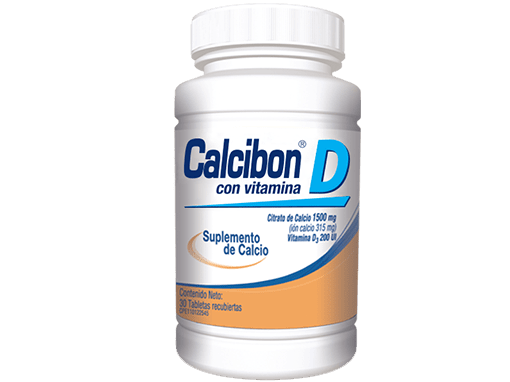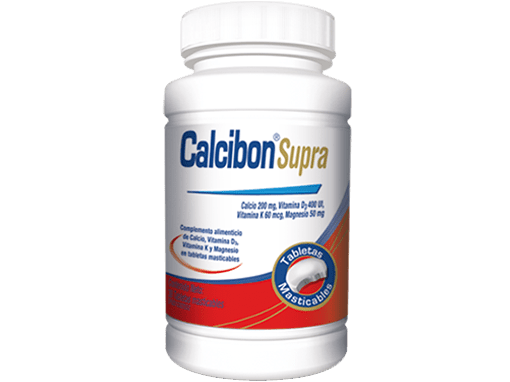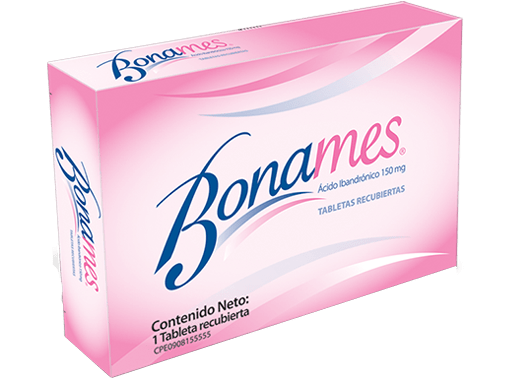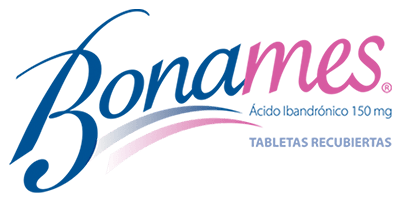Osteoporosis
The decrease in the density of bone tissue, known as osteoporosis, results in an increase in bone fragility, which can lead to fractures.
Medications for osteoporosis
Calcibon® D


Active ingredient in Calcibon® D:
calcium citrate 1500 mg – vitamin D 200 IUCalcibon® D indications:
- Calcium and vitamin D supplement
Dosage of Calcibon® D:
One to two tablets a dayDosage forms of Calcibon® D:
- 1500 mg / 200IU tablets x 30
Leaflet
What is osteoporosis?
Osteoporosis is a disease involving a loss of bone mass and deterioration of the microarchitecture of bone tissue. Due to this the skeleton becomes fragile and even a minor bump or fall can cause a fracture due to the fragility. Because osteoporosis does not cause any symptoms it is often called the “silent disease.”
What are the frequent causes of osteoporosis?
In women the main cause of osteoporosis is estrogen deficiency due to menopause. There are also other factors: white skin, prolonged use of glucocorticoids, drinking alcohol, low body mass index, little physical activity, use of medications (anticonvulsant drugs, for example), some chronic diseases such as intestinal diseases, inflammatory diseases, malignant diseases. Long-lasting amenorrhea.
Why is vitamin D important?
Many people do not get enough vitamin D, which is an important factor for metabolism of calcium. Vitamin D helps improve the absorption of calcium by the intestine. People are also advised to get 15 minutes of sunlight every day to help metabolize calcium. Vitamin D helps reduce loss of bone mass, favors a proper response to antiresorptive therapy and improve muscle strength to avoid the risk of falls and fractures due to osteoporosis.
How many types of calcium supplements are there?
The calcium we take as a supplement is not pure, we take it in mixes or compounds. The main types available are calcium citrate and calcium carbonate. Calcium carbonate must be taken with meals for proper absorption. Calcium citrate (Calcibon® D) can be taken with or without food and is more easily absorbed than calcium carbonate. It does not cause gas or constipation. Calcium citrate does not cause lithiasis in the kidney. In elderly patients or those taking products to reduce stomach acid, calcium citrate is ideal because it is absorbed regardless of the stomach pH level. Other forms of calcium, such as calcium gluconate or calcium phosphate have very little elemental calcium and are not recommended as sources of calcium.
Calcibon® Supra
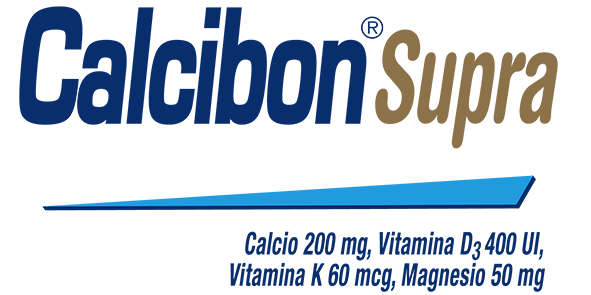

Active ingredient in Calcibon® Supra:
calcium citrate 950 mg (equivalent to 200 mg of elemental calcium) – vitamin D 400 IU, vitamin K 60 mcg – magnesium 50 mgCalcibon® Supra indications:
- Food supplement providing calcium, vitamin D, vitamin K and magnesium.
Dosage of Calcibon® Supra:
One to two tablets every day.Dosage form of Calcibon® Supra:
- 200 mg, 400 IU, 60 mcg, 50 mg chewable tablets x 30





